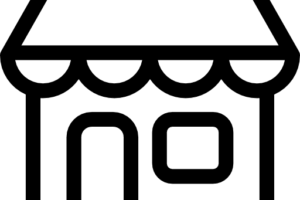CRM App For All Business Using MERN Stack
The CRM App for All Business, developed using the MERN Stack (MongoDB, Express.js, React.js, Node.js), offers a comprehensive and efficient solution for managing customer relationships across various industries. This application provides a centralized platform for businesses to streamline their sales processes, enhance customer engagement, and improve overall productivity. The Admin module includes functionalities such as user management, lead tracking, and sales performance monitoring, allowing administrators to maintain control over business operations and optimize resource allocation. Sales representatives benefit from a personalized dashboard to manage leads, track activities, and generate performance reports, fostering better client interactions and driving sales growth. The integration of modern web technologies ensures a responsive, scalable, and secure application, capable of handling the dynamic needs of contemporary businesses. By leveraging the MERN stack, the CRM App delivers a user-friendly interface and robust backend support, ensuring seamless data flow and real-time updates. This solution empowers businesses to make data-driven decisions, enhance collaboration, and ultimately achieve higher customer satisfaction and retention rates. CRM App For All Business Using MERN Stack
MERN React JS Software Languages
- Front End : React JS, CSS3, Bootstrap
- Back End : Express JS, Node JS,
- Data Base: Mongo DB
Tools:
- VS Studio
- Mongo DB
Modules List
Admin
- Login:
- Secure authentication for administrative access.
- Dashboard:
- Overview of system activities, including sales performance, user statistics, and task summaries.
- User Management:
- Add/Update/Delete user accounts.
- Assign roles and permissions.
- Lead Management:
- Track and manage sales leads.
- Assign leads to sales representatives.
- Update lead status and progress.
- Sales Management:
- Manage sales opportunities and pipelines.
- Monitor sales performance metrics.
- Logout:
- Securely logout from the system.
Sales Representative
- Login:
- Secure authentication for sales representatives.
- Dashboard:
- View personal sales performance, tasks, and upcoming activities.
- Lead Management:
- View and update assigned leads.
- Track lead status and interactions.
- Activity Tracking:
- Log calls, meetings, and emails with clients.
- Reports:
- Generate personal performance reports.
- Profile Management:
- Update personal information.
- Logout:
- Securely logout from the system.
Existing System:
In the context of customer relationship management (CRM), many businesses still rely on traditional methods and disparate software solutions to manage customer interactions, sales processes, and marketing efforts. The existing systems often involve using spreadsheets, email clients, and basic contact management tools, which are not fully integrated. These fragmented approaches lead to inefficiencies and challenges in maintaining a cohesive view of customer data and sales activities. Moreover, some businesses use outdated or single-purpose CRM software that lacks the flexibility and scalability to meet modern business demands. This reliance on non-integrated and obsolete systems hinders the ability to deliver a seamless and personalized customer experience, ultimately affecting customer satisfaction and business growth.
Disadvantages in the Existing System:
- Fragmented Data: Customer information is often scattered across different tools and platforms, making it difficult to get a unified view of customer interactions and histories.
- Inefficiency: Manual data entry and lack of automation slow down processes, leading to decreased productivity and potential errors.
- Lack of Integration: Existing systems may not integrate well with other essential business tools, such as email marketing platforms, social media, and e-commerce systems, resulting in siloed data and limited functionality.
- Poor Scalability: Traditional CRM solutions may not scale effectively as the business grows, leading to performance issues and increased costs for upgrading systems.
- Limited Accessibility: Many existing systems are not cloud-based, restricting access to customer data to office environments and reducing the flexibility for remote work.
- Inadequate Reporting and Analytics: Basic or outdated systems often lack advanced reporting and analytics capabilities, hindering the ability to gain insights from customer data and make informed business decisions.
- Security Concerns: Older systems may not comply with modern security standards, putting sensitive customer data at risk of breaches and unauthorized access.
- User Unfriendliness: Many traditional CRM tools have outdated interfaces that are not user-friendly, leading to low adoption rates and decreased efficiency among staff.
- High Maintenance Costs: Maintaining and updating legacy systems can be costly and resource-intensive, diverting attention from core business activities.
Proposed System:
The proposed system is a comprehensive CRM app for all businesses, built using the MERN stack (MongoDB, Express.js, React.js, and Node.js). This modern CRM solution integrates various functionalities into a single, user-friendly platform, providing businesses with a unified view of customer interactions, sales activities, and marketing efforts. The system is designed to automate routine tasks, enhance data accessibility, and improve overall efficiency. With a focus on scalability and flexibility, the proposed CRM app can adapt to the evolving needs of businesses of all sizes. By leveraging the MERN stack, the system ensures high performance, robust security, and seamless integration with other business tools.
Advantages in the Proposed System:
- Unified Data Management: Consolidates customer information, sales data, and interaction histories into a single platform, providing a 360-degree view of each customer.
- Enhanced Efficiency: Automates routine tasks such as data entry, follow-up reminders, and report generation, freeing up time for staff to focus on strategic activities.
- Scalability: Designed to grow with the business, the system can handle increasing amounts of data and user activity without compromising performance.
- Cloud-based Accessibility: Enables access to customer data and CRM functionalities from anywhere, supporting remote work and on-the-go management.
- User-friendly Interface: Features an intuitive, modern interface that enhances user experience and boosts adoption rates among employees.
- Cost-effective Maintenance: Reduces the costs associated with maintaining and updating legacy systems, thanks to its scalable, cloud-based infrastructure.
Conclusion:
The proposed CRM App for all businesses using the MERN stack represents a significant advancement over traditional CRM systems. By integrating modern technologies and emphasizing user experience, data accessibility, and process automation, the system empowers businesses to manage customer relationships more effectively and efficiently. The unified platform consolidates various business functions, enhancing data visibility and enabling informed decision-making. Its scalable and flexible nature ensures that it can grow alongside the business, adapting to changing needs without compromising performance. Overall, the proposed CRM system is poised to transform how businesses interact with their customers, manage their sales processes, and drive growth.
Future Enhancements:
- AI and Machine Learning Integration: Incorporate AI-driven features like predictive analytics, sales forecasting, and personalized customer recommendations to provide deeper insights and automate more complex tasks.
- Mobile App Development: Develop dedicated mobile applications for iOS and Android to offer enhanced on-the-go accessibility and functionality for sales representatives and managers.
- Voice Recognition and Virtual Assistants: Implement voice recognition technology and virtual assistants to streamline data entry, scheduling, and task management through voice commands.
- Enhanced Data Visualization: Introduce advanced data visualization tools to create more dynamic and interactive reports, helping users to better understand trends and performance metrics.
- Gamification Features: Add gamification elements to encourage user engagement and motivation, such as leaderboards, achievement badges, and performance-based rewards.
- Integration with IoT Devices: Explore integration with Internet of Things (IoT) devices to gather real-time data from connected products, offering new insights and customer service opportunities.
- Advanced Security Features: Continuously enhance security measures by incorporating advanced technologies such as biometric authentication, blockchain for data integrity, and adaptive security measures.
- Customer Self-Service Portal: Develop a self-service portal for customers to access their data, manage their accounts, and interact with support services independently, reducing the burden on customer service teams.
- Multi-language and Multi-currency Support: Expand the system’s capabilities to support multiple languages and currencies, catering to global businesses and their diverse customer bases.
- API Expansion: Broaden the range of available APIs to facilitate more extensive integration with third-party applications and services, enhancing the system’s flexibility and interoperability.
By continuously evolving the CRM system with these future enhancements, businesses can stay ahead of the curve, leveraging the latest technologies to maintain competitive advantage and ensure exceptional customer relationship management.










